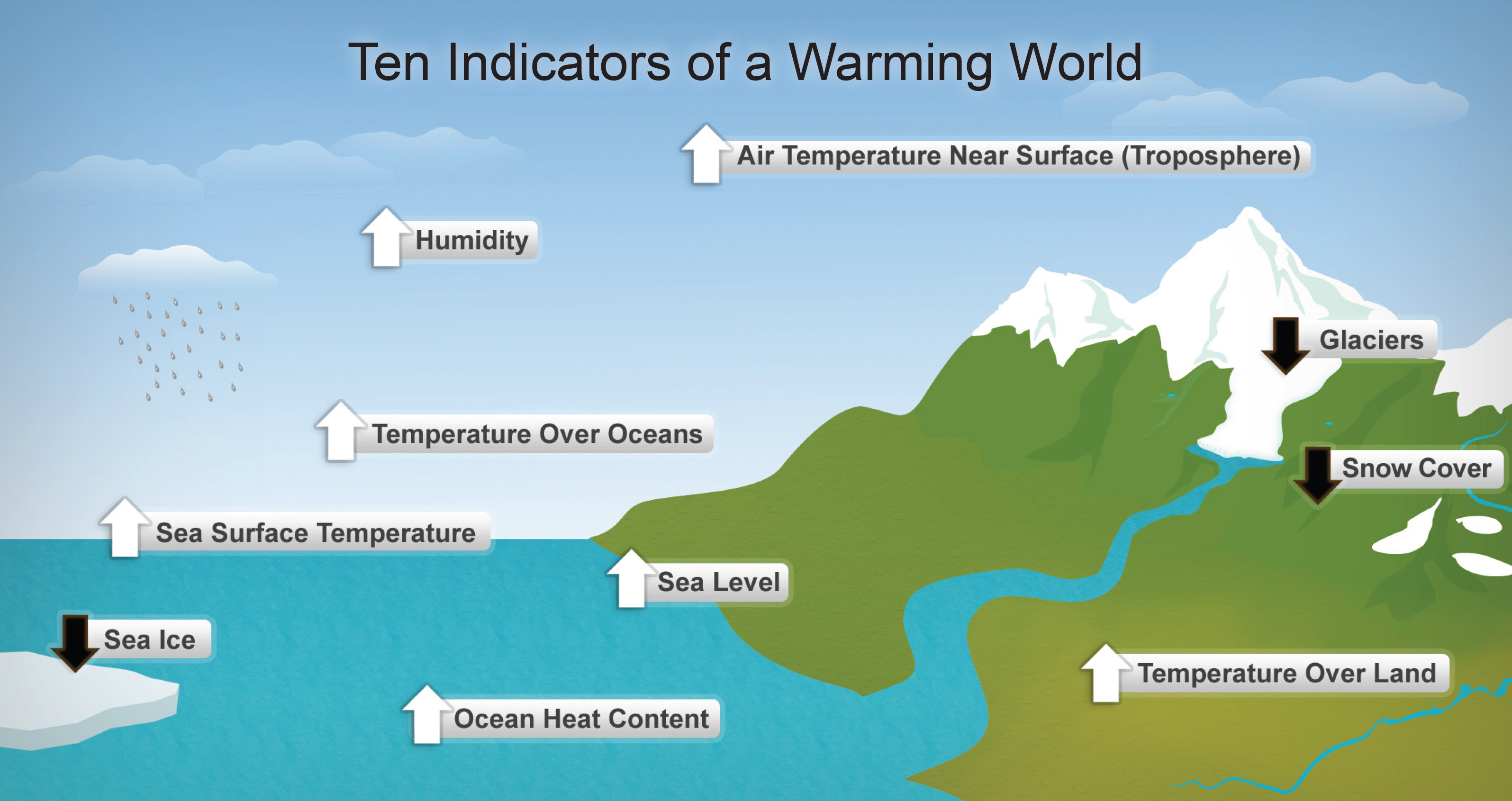Climate Change

Credit: US National Oceanic and Atmospheric Administration:
National Climatic Data Center
The Earths' climate is always changing. It shifts through a regular cycle of temperatures. These cycles are around 100,000-years long. They move the Earth through warm periods, then cold ones. This is known as climate oscillation. At the moment we are in a warm period. These are called interglacial periods. Cold periods are called ice ages.
This natural cycle has happened for millions of years. But, it has been changed by humans. We call this human-led change, Climate Change.
A big effect of climate change is the rise in global temperature. Humans have released greenhouse gases into the atmosphere. As greenhouse gases rise, so do the average temperatures on Earth.
Not all areas on Earth will experience climate change in the same way. Some areas on Earth will become much warmer. Others will become colder. Higher temperatures cause glaciers to melt. When they melt, more freshwater ends up in the ocean. This contributes to sea-level rise and changes crucial process in the ocean. One of these is the Gulf Stream. The Gulf Stream brings warm water from the Southern Hemisphere to the UK. If the Gulf Stream becomes weaker, the UK will become colder.
Sea-level rise means some coastal areas will disappear underwater. The weather will become more extreme too. This leads to more storms and flooding. These changes to the environment will have an effect on all life. Some species will become extinct.
There are many more impacts of climate change. Climate scientists are working hard to understand them. But, there are things we can all do to help tackle climate change.
Some are simple, like not wasting energy. We can move to renewable energy sources, like solar and wind power. Wind and solar power reduce the amount of fossil fuels we burn. Fossil such as oil and gas release greenhouse gasses.
We can use energy-saving light bulbs in our homes. We can turn our heating down by a degree. Small changes can help. But, we also need countries to work together. To make a big difference, we need global agreements.

